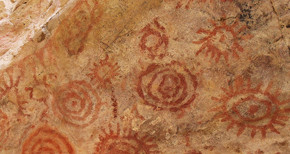Call for Editor, Advances in Archaeological Practice
 Deadline to apply is January 1, 2021.
Deadline to apply is January 1, 2021.
The Society for American Archaeology (SAA) invites applications for the editorship of Advances in Archaeological Practice—the most recently established journal published by the Society, currently in its 8th volume. The term is for three years and may be renewed once with the approval of the Publications Committee and Board. The editor position falls vacant on April 1, 2022, when the current editors, Sarah Herr, Christina Rieth, and Sjoerd van der Linde, complete their terms. The editorship is preceded by a one-year transition with the current editors, beginning with the editor-designate’s appointment in Spring 2021 until the start of the new editor’s term in Spring 2022.
Advances in Archaeological Practice joins Latin American Antiquity and American Antiquity as SAA journals, and all three are part of what is offered to SAA members and institutional subscribers. Advances is a quarterly, full-color, digital journal devoted to sharing creative solutions to challenges in the practice of archaeology, particularly as it relates to day-to-day work of archaeologists working globally in academia, museums, government, and private practice. It is unique among SAA journals in having a strong positive social media presence and engaging with readers and contributors on Facebook and Twitter.
The SAA independently published all its journals until 2017, when it entered into a partnership agreement with Cambridge University Press (CUP). This partnership enhances the journals’ visibility and impact worldwide and streamlines the production process for the editor(s). The SAA continues to own its journals, and the journal editors implement their own editorial visions during their terms. The SAA Board is strongly committed to providing the means by which all of the Society’s journals will flourish in changing conditions for publishing.
In addition to encouraging submissions, the editor oversees the progress of an article from the time it is submitted electronically through the Editorial Manager© system until a decision is made. Although the editor is responsible for substantive editing of an article, technical copyediting is done by CUP as part of the production process. The editor has final responsibility for all journal content within general policies established by the SAA Board but works closely with SAA’s publishing team at CUP and SAA’s manager, Publications, and interfaces with the editors of the other SAA journals and the SAA Publications Committee throughout the editorship. The current SAA Style Guide can be downloaded here.
Although editors of the SAA’s journals have often been senior scholars with many years of experience, less-senior individuals may also be able to devote the time and attention to the journal that it requires. Specific experience with editing and overseeing peer-review is helpful. As has been the practice at Advances in Archaeological Practice and Latin American Antiquity, a team of coeditors can also make a proposal to edit the journal. Proposers may indicate whether they would prefer to work alone, are applying as part of a team, or would prefer to work as part of a team but don't have a coeditor to suggest and are open to suggestions from the editorial search task force. All editors must be SAA members.
Applications are made via a proposal that should include (a) discussion of the applicant’s vision for the journal and how it would be achieved; (b) relevant qualifications and experience, including a current curriculum vitae (for both applicants and an assistant, if one is recommended); (c) a realistic budget for the editorial term (including any anticipated expenses for digital reviews and/or any other sections of the journal); (d) a letter from the host institution/employer confirming this level of support (including any release time); and (e) a statement of the applicant’s plans to increase the representation of women, minority genders, and indigenous and descendant community members among the authors of contributions to the journal. Editors may receive minimal compensation for their service, and applications should contain a financial proposal that demonstrates how the expenses of the editorial office will be met through support from the SAA as well as the applicant’s institution/employer. The editor should receive enough release time from their employer to ensure that they have sufficient time to carry out their duties.
Potential applicants for the editorship should make an expression of interest to the chair of the editorial search task force at the earliest possible date so that the chair can make contact, answer any questions, and as appropriate encourage the applicant to submit a proposal for the editorship. Submit application materials electronically no later than January 1, 2021, to Barbara Mills, Chair of the SAA Advances In Archaeological Practice Editorial Search Task Force and Regents Professor of Anthropology, University of Arizona, (520) 621-9671; E-mail: bmills@arizona.edu.



